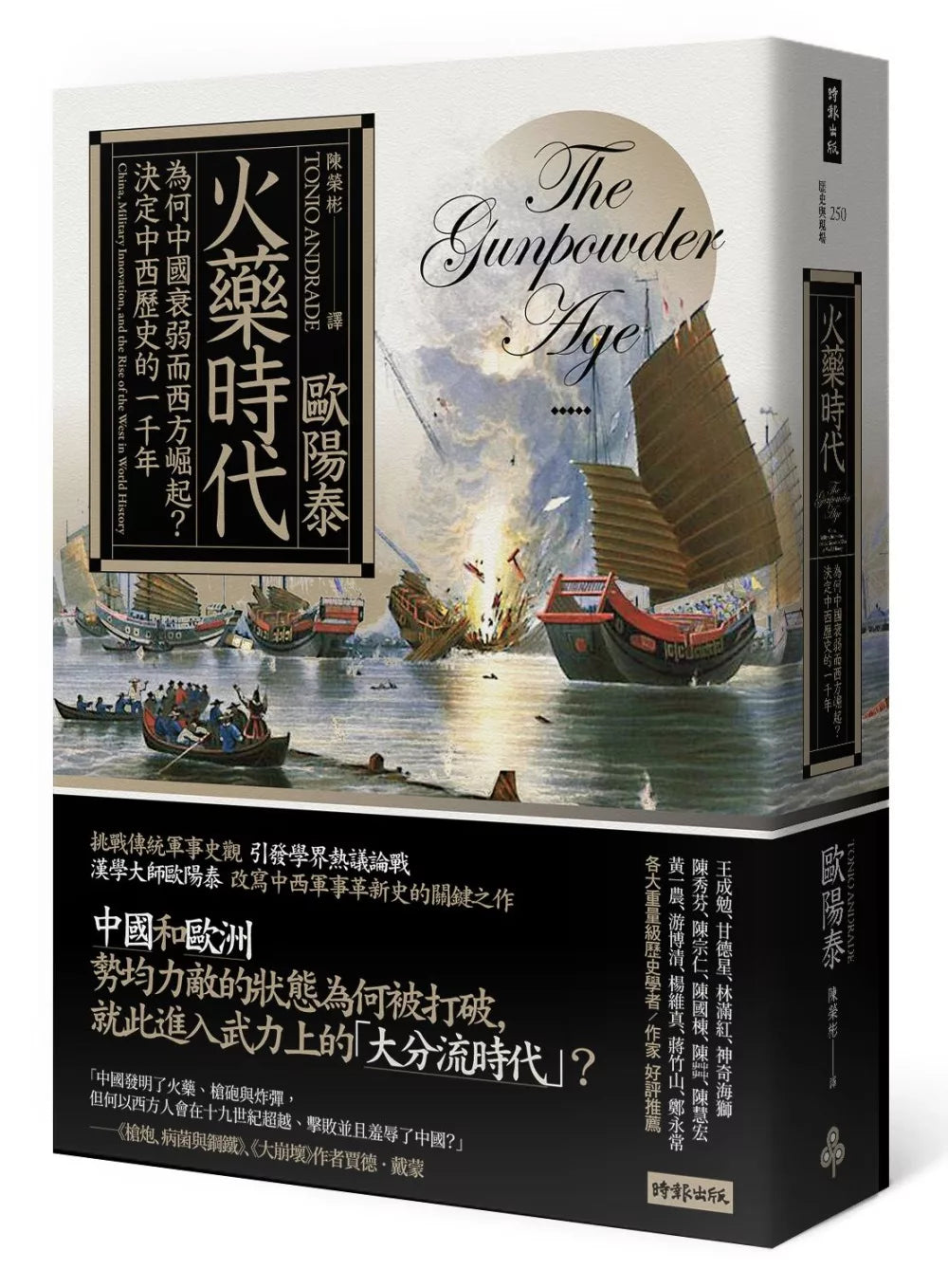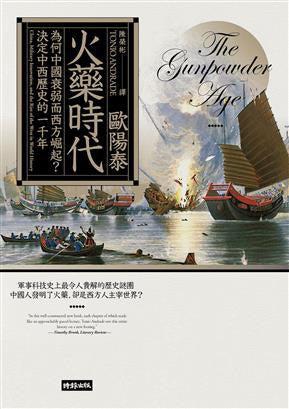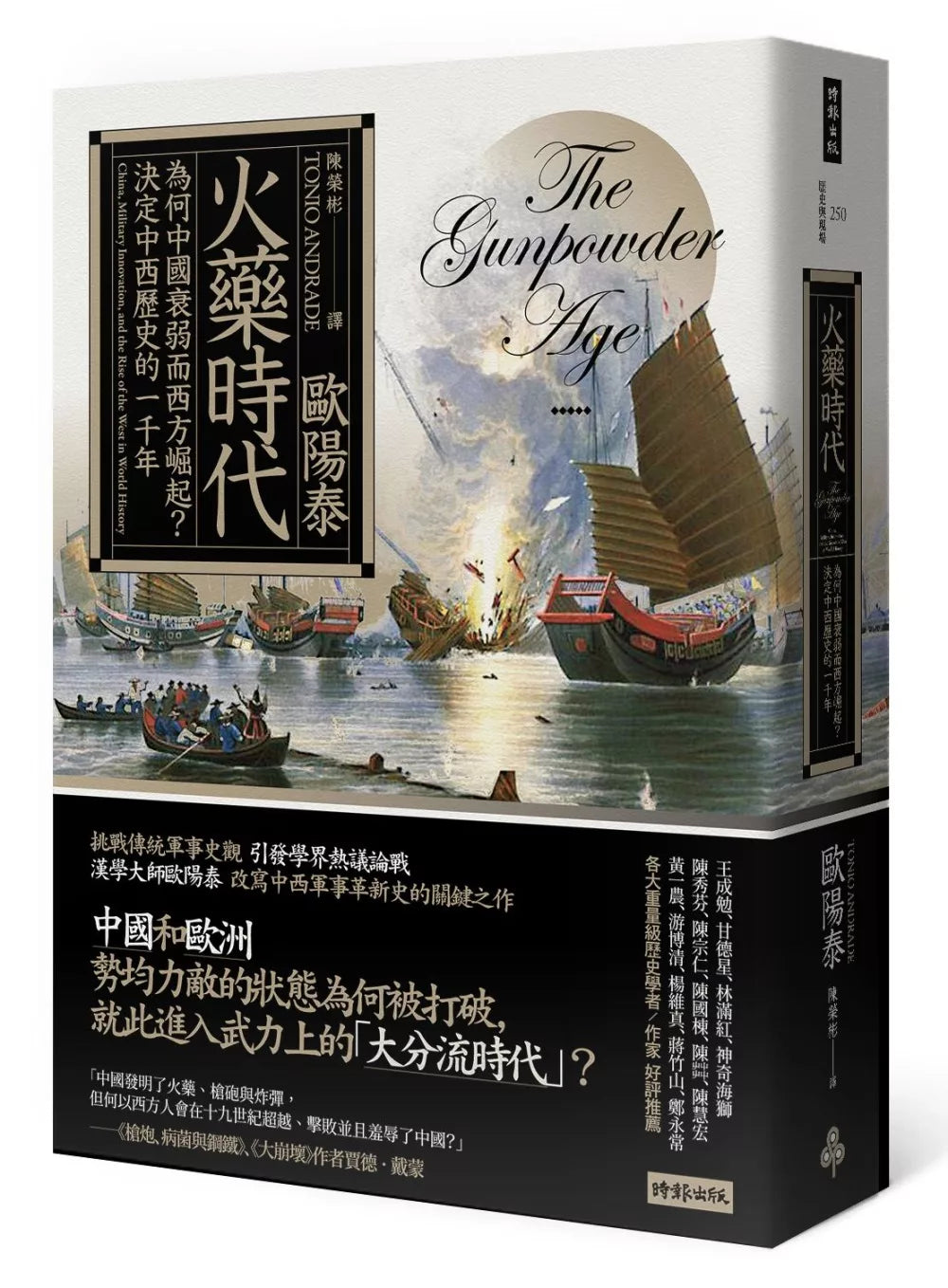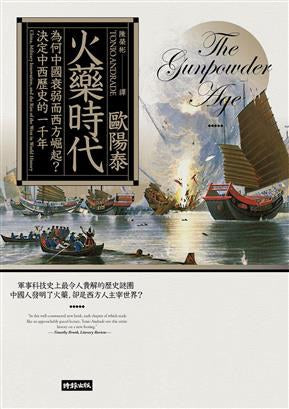1
/
of
2
The Gunpowder Age: Why Did China Weaken and the West Rise? A Thousand Years That Decided Chinese and Western History
The Gunpowder Age: Why Did China Weaken and the West Rise? A Thousand Years That Decided Chinese and Western History
Ouyang Tai Chen Rongbin 译
Regular price
$31.99 USD
Regular price
Sale price
$31.99 USD
Unit price
/
per
Low stock
Couldn't load pickup availability
About Book
About Book
The Gunpowder Age: China, Military Innovation, and the Rise of the West in World History
Why was the balance of power between China and European powers broken?Are we entering an era of "great divergence" in military power?
Challenging traditional military historiography, this work sparked heated debate among scholars. This pivotal work by the master of Sino-West military studies, Ouyang Tai, rewrote the history of military reform in both China and the West.
"China invented gunpowder, guns, and bombs, so how did the West surpass, defeat, and humiliate China in the 19th century?" - Jared Diamond, author of Guns, Germs, and Steel and The Great Collapse
——The most puzzling historical mystery in the history of military technology——
The Chinese invented gunpowder, but it was the Westerners who dominated the modern world?
Sinologist Ouyang Tai re-analyzed the changes in the history of military technology in the East and the West by focusing on the development of firearms.
The real key to unlocking the rise of the West and the decline of the East in modern times.
In the 10th century, the Chinese invented gunpowder and applied it for military purposes. Centuries later, gunpowder technology gradually spread westward. However, in the 19th century, China suffered a severe defeat at the hands of Britain in the Opium War.
Why did China, once the world's first gunpowder empire, lose its leading edge, while the once insignificant Western countries became the superpower that dominated the world?
Starting in the 16th century, Western European nations ascended to global power, while China began to fall behind. Historians have long argued that firearms helped Europeans establish global hegemony. However, the Chinese not only pioneered firearms in the 9th century but also continued to innovate gunpowder technology until the early 18th century—a far longer history than many previously believed.
But why did China become so weak in modern times? One of the main reasons is that starting in the 1760s during the reign of Emperor Qianlong, China entered a period of peace and prosperity that lasted for nearly a century. This "absence of war in the Celestial Empire" led to a stagnation in the development of gunpowder technology.
Prior to this, China and Europe were equally capable of military innovation. However, the "balance of power" between the two sides officially ended with the Opium War, ushering in the "Great Divergence" in military affairs. Yet, why have historians long debated the reasons for this shift in power? This book, through comparative research on Eastern and Western military history, explores not only "Why did China follow a different path from the West?" but also "Why did the West succeed and become the dominant power in the modern world?" Ouyang Tai's book, weaving the theme of gunpowder warfare throughout, breaks down the geographical boundaries of traditional military history research, unravels the landscape of firearms development in the East and West, and overturns the traditional historical narrative of military innovation.
Highly recommended by major historians and writers
Wang Chengmian (Distinguished Professor, Institute of History, National Central University)
Mao Chuanhui (Associate Professor, Department of History, National Tsing Hua University)
Gan Dexing (Associate Professor, Department of History, National Chung Cheng University)
Lin Manhong (Researcher at the Institute of Modern History, Academia Sinica)
Magical Sea Lion (writer for the "Story" website)
Chen Xiufen (Associate Professor, Department of History, National Chengchi University)
Chen Zongren (Associate Researcher, Institute of Taiwan History, Academia Sinica)
Chen Guodong (Researcher at the Institute of History and Philology, Academia Sinica)
Chen Qi (author of "The Strongest Chinese Textbook on Earth")
Chen Huihong (Associate Professor, Department of History, National Taiwan University)
Huang Yinong (Academician of the Academia Sinica)
You Boqing (Assistant Professor, Department of History, National Chung Hsing University)
Yang Weizhen (Dean of the Department of History, National Chung Cheng University)
Jiang Zhushan (Associate Professor, Department of History, National Dong Hwa University)
Zheng Yongchang (Retired Professor of History, National Cheng Kung University)
Luo Shijie (Assistant Professor, Department of History, National Taiwan University)
Publication Date
Publication Date
2017-12-26
Publisher
Publisher
時報出版
Imprint
Imprint
Pages
Pages
576
ISBN
ISBN
9789571372181
share



